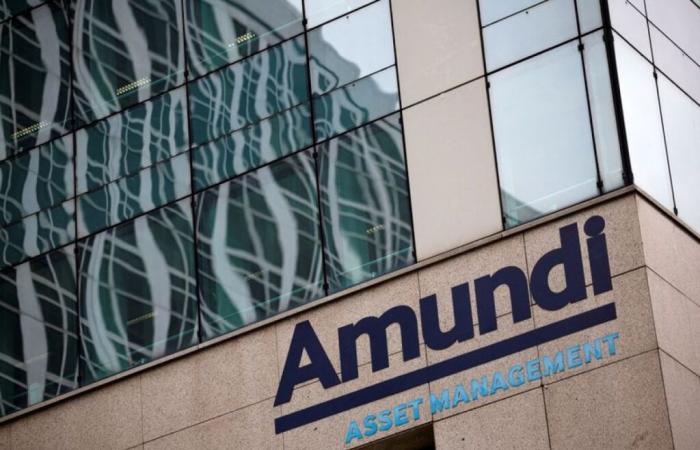An Amundi logo is seen outside the company’s headquarters in Paris
The global economic outlook remains positive in 2025, but political or market risks will force portfolios to be adjusted, estimates Amundi in its investment outlook for next year, published on Monday.
“Our growth scenario is constructive: the risks would not come from macroeconomic activity,” summarizes Vincent Mortier, investment director of Amundi.
The group expects global growth to be 3% next year and a soft landing for the American economy, whose growth would slow to 2.2% after 2.9% in 2024.
The easing of monetary policies in the euro zone and the United States should continue, with the terminal rate expected to be 2.25% and 3.5% respectively in a context of better controlled inflation in the United States.
However, political and geopolitical risks loom over this scenario.
“Donald Trump’s first term was marked by increased uncertainty and spikes in volatility,” recalls Guy Stear, head of developed markets strategy at the Amundi Investment Institute.
“The election of Donald Trump, who seems willing to implement his program, could thus revive inflation and raise fears of a disconnect between price dynamics between Europe and the United States,” adds the official.
The implementation of customs tariffs and an increase in trade tensions, as well as the tightening of migration policy, could support prices.
Guy Stear also underlines that the American markets are facing numerous ” anomalies “: historically high concentration of the S&P 500, very high valuations and falling stock volatility, unlike the volatility on rates.
However, “our clients buy American stocks and nothing else, favoring the scenario of a reduction in tax rates and an increase in customs tariffs favorable to American companies, without taking into account the risks”, notes Vincent Mortier.
In this context, “diversification on several fronts is essential, because possible policy reversals are quite likely to change the situation,” argues Amundi.
The asset manager slightly favors risky assets in the first half, in Japan, on “Value” securities in Europe and on equally weighted American indices.
“Japan will benefit from a resilient domestic economy and balance sheets that are still very rich in liquidity,” explains Vincent Mortier.
Bond assets should remain attractive with slowing inflation, expected rate cuts and activity that will not stumble.
The group particularly favors investment grade credit in the euro zone and the United States, despite high valuation levels in this zone, because the segment offers an attractive return with lower volatility than others. bond assets.
Amundi is also exposed to emerging bonds, in currencies and local currencies, with certain geographies, such as India or Indonesia, offering some protection against commercial risks.
(Written by Corentin Chappron, edited by Sophie Louet)






